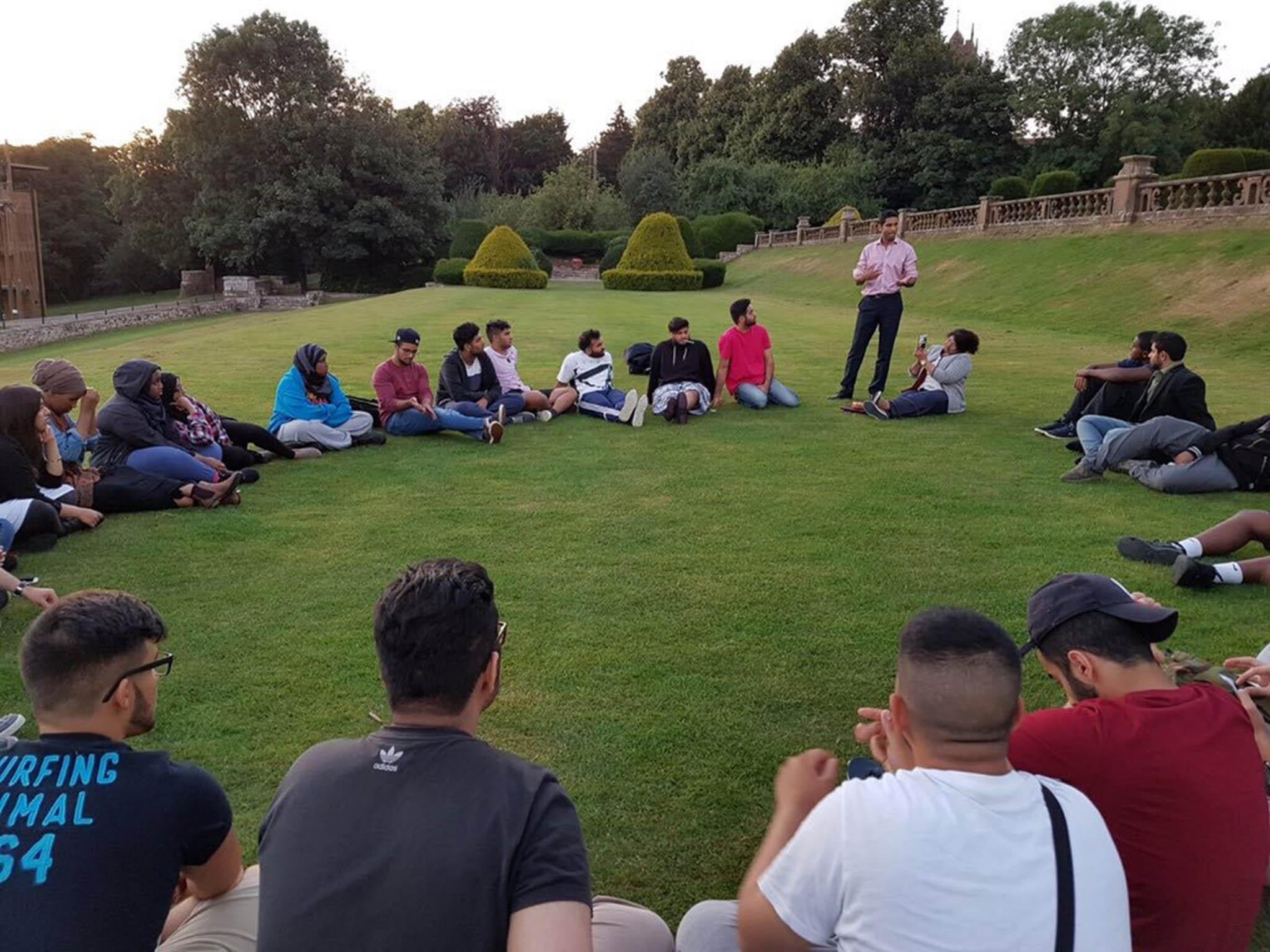Young British Muslims 'hampered by discrimination', finds report
Six per cent of Muslims hold higher managerial, administrative and professional roles, compared with 10 per cent of overall population, study shows

Your support helps us to tell the story
From reproductive rights to climate change to Big Tech, The Independent is on the ground when the story is developing. Whether it's investigating the financials of Elon Musk's pro-Trump PAC or producing our latest documentary, 'The A Word', which shines a light on the American women fighting for reproductive rights, we know how important it is to parse out the facts from the messaging.
At such a critical moment in US history, we need reporters on the ground. Your donation allows us to keep sending journalists to speak to both sides of the story.
The Independent is trusted by Americans across the entire political spectrum. And unlike many other quality news outlets, we choose not to lock Americans out of our reporting and analysis with paywalls. We believe quality journalism should be available to everyone, paid for by those who can afford it.
Your support makes all the difference.Young Muslims in the UK are less likely to succeed in the workplace with many reporting experience of Islamophobia, discrimination and racism, a new report suggests.
Research by the Social Mobility Commission found young Muslims are being held back from reaching their full potential at every stage of their lives, from school to university and at work.
Previous analysis by the advisory body found that young people from Pakistani and Bangladeshi backgrounds are more likely than ever to succeed in education and go on to university than other groups - particularly girls.
However, this success does not translate into the labour market, with only 6 per cent of Muslims in higher managerial, administrative and professional occupations, compared with 10 per cent of the overall population, the new report said.
Alan Milburn, chair of the Social Mobility Commission, said the report “paints a disturbing picture” of challenges young Muslims face.
The former secretary of state for health said: “The British social mobility promise is that hard work will be rewarded. Unfortunately, for many young Muslims in Britain today, this promise is being broken.
“Young Muslims themselves identify cultural barriers in their communities and discrimination in the education system and labour market as some of the principal obstacles that stand in their way. Young Muslim women face a specific challenge to maintain their identity while seeking to succeed in modern Britain.
“These are complex issues and it is vital they are the subject of mature consideration and debate.
“There are no easy or straightforward solutions to the issues they have raised. But a truly inclusive society depends on creating a level playing field of opportunity for all, regardless of gender, ethnicity or background.”
The report found that among 16 to 74-year-olds, only one in five (19.8 per cent) of the Muslim population is in full-time employment, compared to more than one in three (34.9 per cent) of the overall population in England and Wales.
The research found 18 per cent of Muslim women in this age category were more likely to “look after home and family” compared with 6 per cent of their counterparts.
The analysis, based on focus groups and interviews, said that young Muslims feel their transition into the labour market is hampered by discrimination in the recruitment process.
Some interviewees reported that discrimination could take place due to applicants with ethnic-sounding names being less likely to get interviews. They also reported that teachers often had stereotypical or low expectations of them and some said they avoided asking for help for fear they would be targets for bullying and or harassment.
Muslim women in the focus groups also felt that wearing headscarves could lead to discrimination.
The report made a number of recommendations such as improving mentoring for young Muslims in schools, and suggests business bodies promote training of issues including unconscious bias, diversity and religious literacy.
Research leader professor Jacqueline Stevenson, from Sheffield Hallam University, said: “Muslims are excluded, discriminated against, or failed, at all stages of their transition from education to employment. Taken together, these contributory factors have profound implications for social mobility.
“Young Muslims in the UK come from a wide range of backgrounds and life situations. Muslims from low socio-economic backgrounds lack sufficient resources and support to enable them to reach their potential. This is exacerbated by their parents' experiences of higher levels of underemployment and unemployment, particularly where their qualifications were not recognised in the UK.”
Join our commenting forum
Join thought-provoking conversations, follow other Independent readers and see their replies
Comments